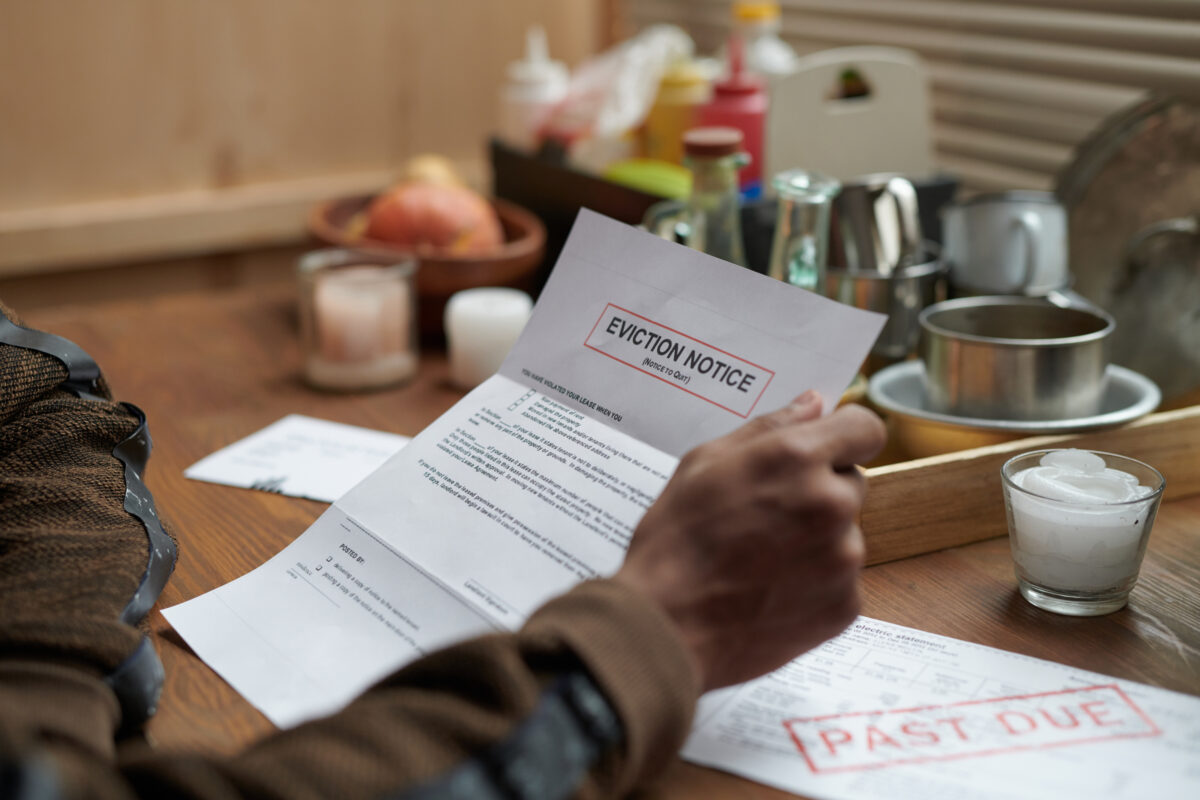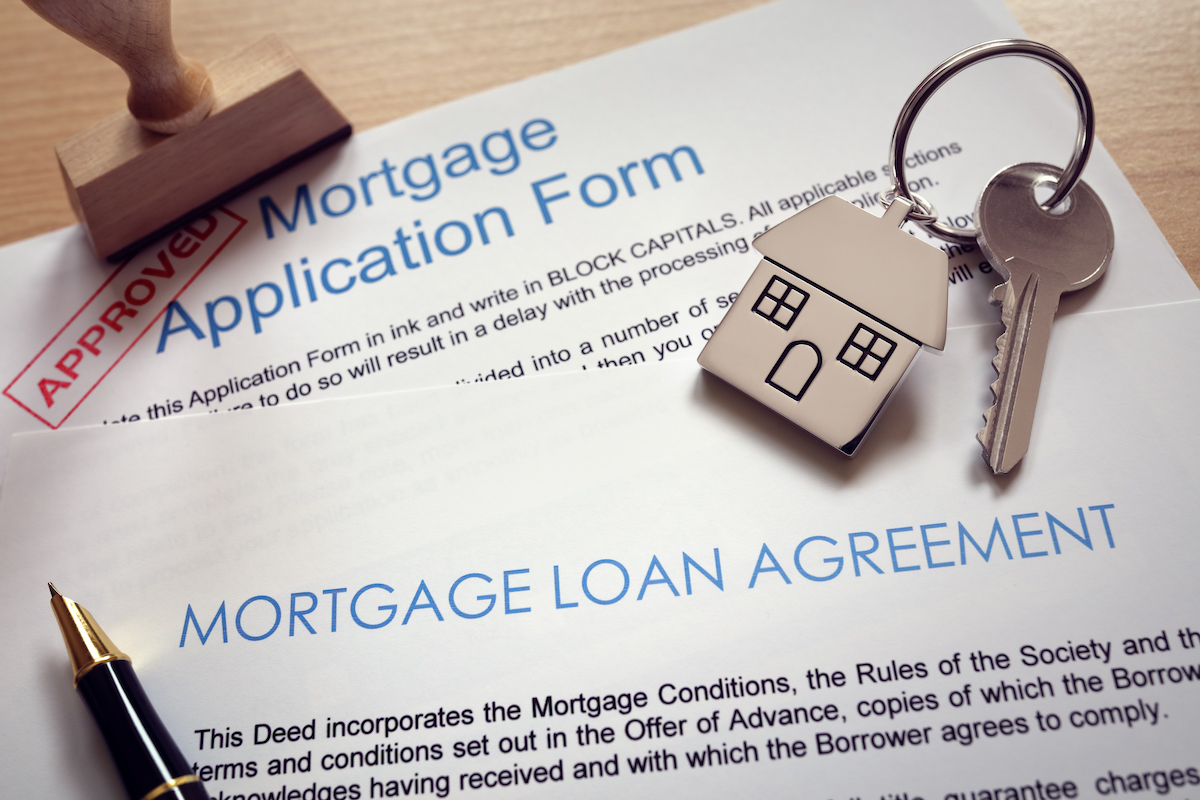We all know about haunted houses and ghost stories, but what if we told you there’s something way scarier in the real estate world? It’s a spooky season and 23 Legal is shining a light on one of the most terrifying situations homeowners can face: zombie foreclosures.
These aren’t just financial nightmares; they’re real-life horror stories that can haunt you long after you’ve left the property. Thousands of homeowners are facing the terrifying reality of losing their homes due to “zombie mortgages” bought by companies—often without the homeowner’s knowledge.
Many thought their second mortgages during the subprime lending housing bubble between 2004 and 2008 were discharged or written off, only to find out years later that these forgotten debts have returned to haunt them.
Join us as we go into the dark and shadowy side of the housing market, understand what causes these “zombie” properties to rise, and—most importantly—how to protect yourself from becoming one.
What is a Foreclosure, and Why Does It Happen?

Before we get into the world of zombie foreclosures, let’s first define what a foreclosure is. Foreclosure is the legal process that occurs when a homeowner can’t make their mortgage payments and the lender seeks to recover the loan balance by selling the property. In other words, the homeowner loses the home and the bank or lender takes over.
In Illinois, like many states, foreclosure can happen for several reasons:
- Job loss or income reduction: Homeowners who lose their jobs or suffer a significant income reduction can’t make their mortgage payments.
- Medical emergencies: Unforeseen medical bills can wipe out savings and leave homeowners without funds to pay their housing costs.
- Divorce or separation: Life events like divorce often lead to financial strain, and one person can’t handle the mortgage alone.
- Rising interest rates: Homeowners with adjustable rate mortgages (ARMs) may see higher monthly payments if interest rates rise and can’t keep up with payments.
Foreclosure is not a quick process; it usually begins when a homeowner defaults on their mortgage. The lender will send notices of delinquency and give the homeowner a chance to catch up on payments. If the homeowner can’t resolve the issue then the lender will file a lawsuit to start the foreclosure process and ultimately sell the property at auction.
To get a better understanding of foreclosure, here are a few key terms to know:
- Foreclosure is the entire legal process where the lender takes over the home.
- A home in foreclosure is a property currently undergoing this process.
- A foreclosed home or Real Estate Owned (REO), is a home that has gone through the foreclosure process and is now owned by the bank or lender.
On average, the national timeline for completing a foreclosure process is 857 days, though this varies depending on the state.
What Are Zombie Foreclosures?
Now that we know what foreclosure is, let’s talk about its evil twin: the zombie foreclosure. A zombie foreclosure is when a homeowner leaves their property thinking the foreclosure process is complete — only to find out months or even years later that the property is still in their name. This happens when the foreclosure process isn’t completed by the lender and the property is stuck in limbo. And just like the undead, these homes aren’t really “dead” in the legal sense even though they look abandoned and neglected.
Why the term “zombie”? Imagine this: the homeowner thinks they’ve escaped the financial burden, but just like in a horror movie the responsibility for the home haunts them long after they’ve left. The property sits empty for months or even years, slowly decaying while taxes and fees accumulate without the homeowner even knowing.
How Do Zombie Foreclosures Happen?

Zombie foreclosures happen when a lender starts the foreclosure process but for whatever reason—legal delays, market conditions, or internal mistakes—can’t complete it. Meanwhile, the homeowner thinking they are no longer responsible for the property moves out.
Take the story of “Andy” for example. In 2009 after the housing market crash, Andy’s second mortgage was sold off but he didn’t know to whom. After years of trying to make payments and getting no communication then a law firm suddenly contacted him demanding full payment. He was caught off guard realizing his financial nightmare wasn’t over as he thought.
In Illinois, the average foreclosure process can take over 1,300 days, one of the longest in the country. This long process often leaves properties abandoned and gives rise to more zombie foreclosures. Homeowners are unaware their property title is still active and in the meantime local governments are still assessing property taxes, homeowners’ associations are demanding fees and municipalities are fining them for code violations because of the property’s condition. All of this financial responsibility still rests on the homeowner even though they think the bank has taken over.
According to ATTOM’s 3rd quarter 2024 report, 222,934 residential properties are in foreclosure and 1.4 million homes are vacant which is 1.3% of all U.S. homes. Foreclosure rates are down 29.3% from the same period last year but zombie foreclosures are still a problem.
What Happens to a Home After the Homeowner Vacates?
Once a homeowner vacates a property in a zombie foreclosure the home deteriorates fast. Without regular maintenance vacant homes are susceptible to vandalism, weather damage, and structural decay. Overgrown lawns, broken windows, and peeling paint make the property look abandoned and eerie, lowering the value of nearby homes and attracting criminal activity.
These zombie properties don’t just affect the former homeowner. The impact is to the entire community:
- Blight: Zombie foreclosures contribute to urban decay, dragging down property values and creating eyesores in otherwise well-kept neighborhoods.
- Neighborhood crime: Vacant homes are a target for squatters, vandals, and thieves. These properties become a magnet for illegal activity and make the community less safe.
- Tax burdens: Local governments lose revenue on uncollected property taxes, and the cost of maintaining or demolishing abandoned homes often falls on taxpayers.
For homeowners, the nightmare doesn’t end when they leave the house. They can still be liable for taxes, fines, and repairs on a property they thought they no longer owned. This can lead to financial ruin and legal headaches years after they move out.
Illinois Foreclosure Laws: A Brief Overview
Understanding Illinois foreclosure laws is key to avoiding a zombie foreclosure. Illinois is a judicial foreclosure state, meaning foreclosures must go through the court system. Here’s a quick breakdown:
- Pre-Foreclosure: The lender must notify the homeowner they are in default and allow them to catch up on payments.
- Lawsuit: If the homeowner can’t resolve the issue the lender files a foreclosure lawsuit.
- Court Proceedings: Once the lawsuit is filed the court will review the case. The homeowner has the opportunity to respond and defend against the foreclosure. If the court rules in favor of the lender a judgment of foreclosure is issued.
- Redemption Period: In Illinois, homeowners have a right of redemption, meaning they can reclaim their property by paying off the outstanding mortgage balance (plus any additional fees) before the sale is finalized. This redemption period is 7 months after the homeowner receives notice of foreclosure.
- Foreclosure Sale: If the homeowner can’t redeem the property the court will order the sale of the property at auction. The home is sold to the highest bidder, usually the lender.
- Deficiency Judgment: If the sale price of the home is less than the remaining mortgage balance the lender can seek a deficiency judgment against the homeowner.
The foreclosure process in Illinois can take years to complete and homeowners need to stay informed every step of the way. But when communication breaks down or there’s a delay homeowners can be left in the dark and end up in a zombie foreclosure.
How to Prevent a Foreclosure and Avoid Zombie Foreclosures with 23 Legal
Zombie foreclosures are scary but the good news is homeowners can take steps to prevent foreclosures and avoid being trapped in a zombie situation.
1. Communicate with Your Lender
If you’re having trouble making your mortgage payments the worst thing you can do is ignore the problem. Contact your lender as soon as you realize you’re behind. Many lenders have hardship programs, loan modifications, or repayment plans to help you get current and avoid foreclosure.
2. Seek Legal Advice from a Professional
Foreclosure is complicated and having an attorney on your side can make all the difference. Legal experts can help you understand your options, negotiate with your lender, and if necessary defend against foreclosure in court. At 23 Legal, Ben Weaver and his team will help homeowners protect their rights and avoid zombie foreclosures.
3. Understand Your Rights and Responsibilities!
Stay informed about the status of your foreclosure, especially if you’ve already moved out of the property. Ask your lender or attorney for updates and make sure the foreclosure is completed properly. Confirm if you’re still responsible for taxes, insurance, or maintenance on the property.
4. Consider a Short Sale or Deed in Lieu of Foreclosure
If you know it’s a foreclosure, there are options that can prevent a zombie foreclosure. A short sale is selling the property for less than the mortgage balance with the lender’s approval. A deed in lieu of foreclosure is an agreement where the homeowner gives the lender the property and avoids foreclosure altogether.
5. Stay in Your Home Until the Foreclosure is Finalized
One of the main reasons zombie foreclosures happen is that homeowners leave the property too soon, thinking they’re no longer responsible. Don’t do that. Stay in your home until the foreclosure is done. This will prevent damage to the property, and you won’t be held responsible for future obligations.
Protect Yourself from the Zombie Nightmare with attorney Ben Weaver!
Foreclosures are bad enough, but zombie foreclosures can become an ongoing nightmare that haunts you for years. These abandoned, deteriorating properties will continue to cause financial and legal problems long after you’ve left, and you’ll be stuck in a horror movie you never signed up for.
To avoid becoming a zombie foreclosure victim, stay informed, get legal advice, and manage your mortgage. And if you ever find yourself in foreclosure, don’t wait—ask for help.
Contact 23 Legal for Expert Guidance
If you’re concerned about foreclosure or think you might be a zombie foreclosure risk, contact 23 Legal now. Attorney Ben Weaver and his team have been defending foreclosures for years and can walk you through the entire process. Whether you need help negotiating with your lender, understanding your options, or defending in court, 23 Legal has got you covered.
Don’t let a zombie foreclosure & potential eviction haunt your future.
Reach out to us today to take control of your situation before it’s too late!
Accomplish your real estate goals with 23 Legal: (847) 447-6004
Why Choose 23 Legal
23 Legal offers Real Estate and Estate Planning legal services to individuals, families, community associations and small business owners throughout Chicagoland. We know how intimidating “the law” can be. In fact, when most people think of law offices, they think of stuffy leather chairs, huge wooden desks and pompous lawyers who charge outrageous fees. That’s not us! We believe in 1-to-1; the same lawyer should work with you all the way through. Whether you have an estate planning issue, family trust concern, or you have a legal problem in regard to a new home, business, real estate or remodel, you need a lawyer who cares. That’s where Ben comes in! We are great listeners; more than that, we are lawyers who believe that our clients always come first.



